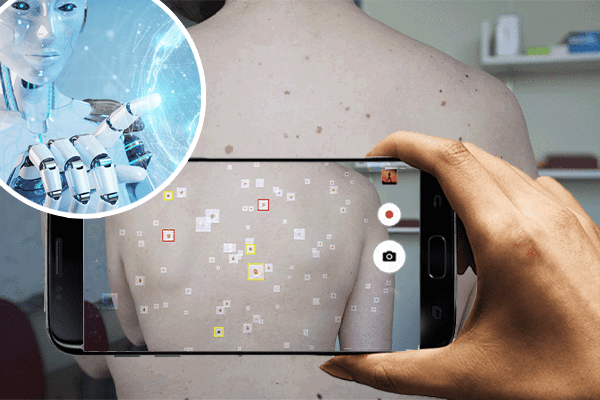How AI is Transforming Skin Cancer Prevention Through Personalized Behavior Change
Discover how AI is transforming skin cancer prevention by encouraging behavior change through personalized risk assessments, early detection, and monitoring.


Skin cancer is the most common cancer worldwide, yet it’s also highly preventable. While public health campaigns have long focused on educating people about the dangers of UV exposure, artificial intelligence (AI) is now making it easier for individuals to take preventive measures. By promoting behavior change through personalized interventions, AI is playing a pivotal role in skin cancer prevention.
The Role of AI in Skin Cancer Prevention
AI technologies, including machine learning algorithms, are being employed to analyze data from various sources such as skin scans, weather conditions, and personal health information. These systems provide tailored recommendations to individuals, encouraging behavior change, such as using sunscreen more frequently or scheduling regular dermatology visits.
Personalized Skin Monitoring
Many people are unaware of their risk factors for skin cancer, which makes personalized monitoring vital. AI-powered apps and devices can scan your skin for abnormalities, track moles, and alert you to any changes that may warrant a visit to the doctor. These tools take into account your individual risk profile, including age, skin type, and geographical location, helping you stay proactive about your skin health.
Behavioral Nudges for Prevention
AI doesn’t just diagnose potential skin cancer; it helps modify behavior. With data on daily UV exposure, AI apps can send reminders to apply sunscreen or wear protective clothing. The key to AI’s success in behavior change lies in its ability to make recommendations based on real-time, personal data, making them far more effective than generic public health campaigns.
Early Detection with AI
In addition to encouraging preventive measures, AI is excelling in early skin cancer detection. By analyzing images of moles and lesions, AI algorithms can identify patterns that might be missed by the human eye. This allows for earlier diagnosis and treatment, which significantly improves survival rates. In fact, AI-driven tools are now often more accurate than dermatologists in identifying malignant skin conditions.
Empowering Dermatologists with AI
AI is not a replacement for human expertise but a tool that enhances it. Dermatologists can use AI-powered tools to assess patients more quickly and accurately. These tools analyze large sets of data, comparing your skin images to millions of others, to give dermatologists a better understanding of potential risks.
Behavior Change
While early detection is crucial, changing risky behaviors is the best way to prevent skin cancer in the long term. AI’s real-time feedback loop encourages individuals to take immediate action when needed. Over time, these small adjustments can result in better habits and reduced skin cancer risks.
Case Study: AI-Driven UV Protection Reminders
An AI-driven app called SunSmart is leading the charge by monitoring your daily UV exposure and sending notifications when it’s time to seek shade or reapply sunscreen. This proactive approach to sun safety has already led to improved sun protection habits in countries with high skin cancer rates, such as Australia.
The Future of AI in Skin Cancer Prevention
As AI technology evolves, so will its role in skin cancer prevention. Future AI systems may integrate with other health monitoring devices, such as wearable fitness trackers, to provide an even more comprehensive view of your skin health. Additionally, AI could soon incorporate genetic data to offer highly personalized skin cancer prevention plans.
Conclusion
AI is transforming the way we approach skin cancer prevention by promoting real-time, personalized behavior changes. By helping individuals make better decisions regarding sun exposure and skin monitoring, AI not only aids in early detection but also ensures long-term prevention. As these technologies become more advanced, they will continue to play a key role in reducing skin cancer rates worldwide.